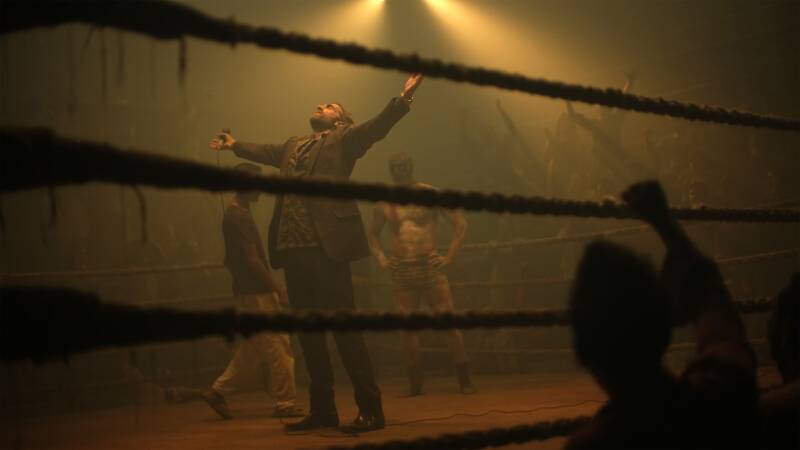
"Monkey Man" heralds the arrival of Dev Patel as a multifaceted talent, not only as an acclaimed actor but now as a director, with a debut that crackles with energy, ambition, and a distinct artistic vision. Patel's foray into the director's chair showcases a deep reverence for the martial arts genre while infusing it with his own unique flair, resulting in a film that feels both familiar and refreshingly original.
At the heart of "Monkey Man" lies a narrative that pulses with themes of justice, redemption, and cultural identity. Patel weaves together a tapestry of myth and modernity, crafting a story that resonates on both visceral and intellectual levels. Drawing inspiration from iconic martial arts films like "Ong-Bak" and paying homage to the legendary Bruce Lee, Patel's direction is a testament to his cinematic influences while also carving out his own path in the genre.
One of the most striking aspects of "Monkey Man" is its visual aesthetic. From the bustling streets to the heart-stopping action sequences, every frame feels meticulously crafted, with Patel demonstrating a keen eye for composition and style. The fight scenes, in particular, are a masterclass in choreography and cinematography, drawing viewers into the heart of the action with a visceral intensity that leaves them breathless.
The film's soundtrack deserves special mention for its eclectic fusion of Indian music with contemporary genres like drum and bass or lo-fi. These innovative tracks, accompanied by the thunderous roar of the score, further immerses viewers into the heart-pounding action, enhancing the cinematic experience and demonstrating Patel's attention to detail in crafting a multisensory journey.
I wouldn't forgive myself if I didn't mention the delightfully fun homage to the classic training montage trope we've all grown to love. As our protagonist undergoes rigorous training, set to a backdrop of funky beats and playful visuals, viewers can't help but grin from ear to ear, fully immersed in the exhilarating journey of self-discovery and mastery. It's a delightful nod to the beloved traditions of martial arts cinema that fans will undoubtedly appreciate.
But beyond its technical prowess, "Monkey Man" also boasts a soulful core that sets it apart from typical action fare. Patel infuses the film with moments of poignancy and introspection, exploring themes of identity, belonging, and the struggle against systemic injustice. Through his deft storytelling, Patel shines a spotlight on the dark underbelly of Indian society, exposing the corruption and exploitation that lurk beneath the surface.
Of course, no discussion of "Monkey Man" would be complete without acknowledging Patel's own performance in the lead role. As the titular character, he commands the screen with a quiet intensity, imbuing his character with a depth and complexity that is truly captivating to watch. His journey from vigilante to symbol of hope is both compelling and deeply human, anchoring the film amidst its dizzying action and larger-than-life spectacle.
While "Monkey Man" showcases Dev Patel's promising directorial debut, it isn't immune to the occasional misstep, indicative of the learning curve inherent in being a new filmmaker. For instance, there are moments of slight disconnect and formulaic elements that underscore Patel's journey of growth behind the camera. However, these minor flaws are outweighed by the film's raw energy and enthusiasm, reflecting Patel's commitment to honing his craft.
In the end, "Monkey Man" stands as a testament to Dev Patel's talents as both a performer and a filmmaker. With this bold debut, he has not only proven himself as a director to watch but has also cemented his status as one of the most versatile and exciting talents working in cinema today. Whether you're a fan of martial arts epics or simply appreciate a well-crafted story, "Monkey Man" is sure to strike, right where the heart is.
9/10
Add comment
Comments